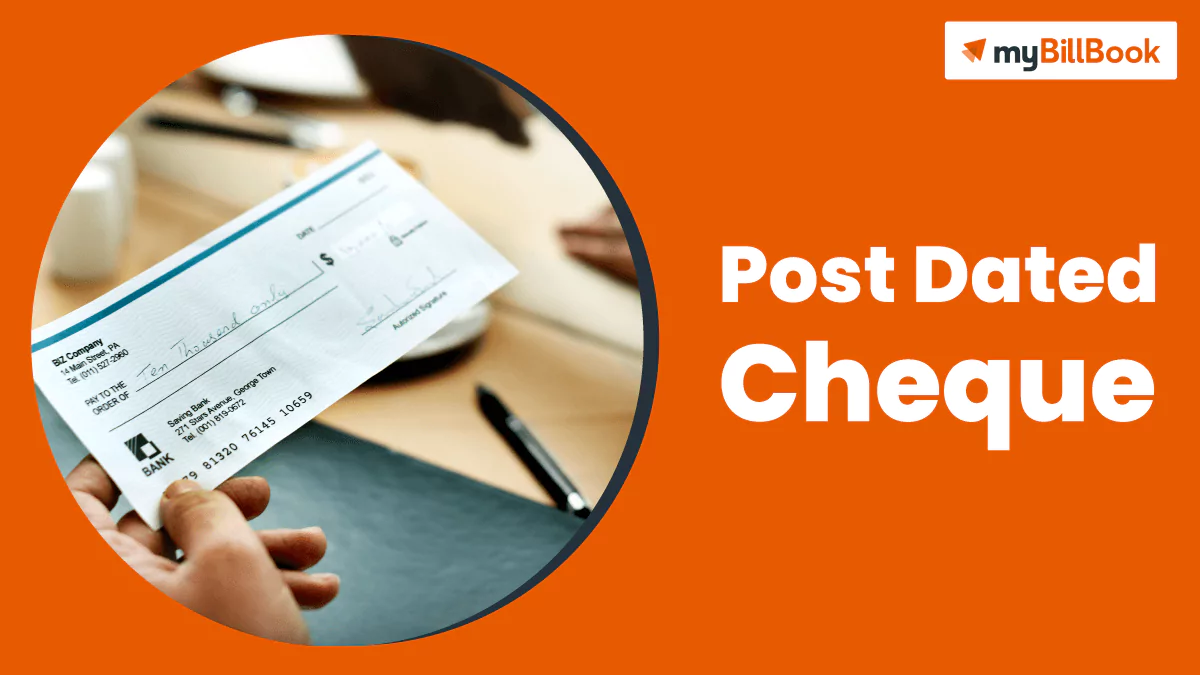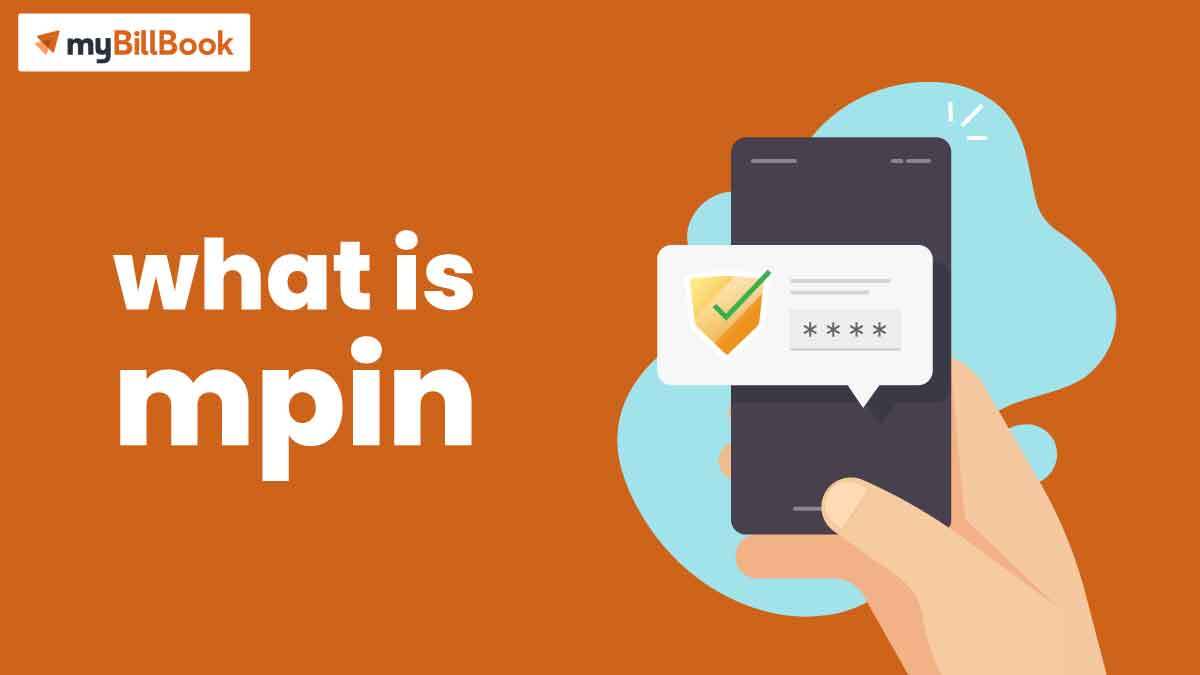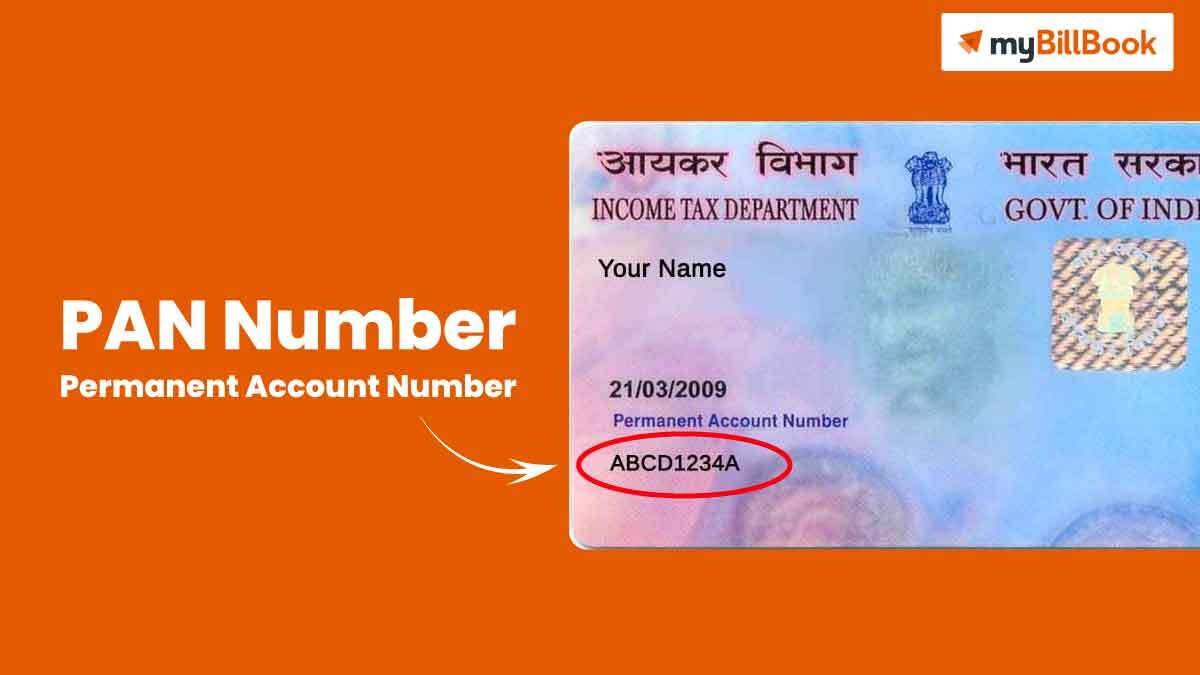Financial stability is commonly regarded as the foundation of any organisation. When a business is involved in sales or purchases, it is necessary to have a practical accounting system. A range of payment options is now available to customers. Customers can pay by cash or bank transfer for the billed amount.
Cheques are one such instrument that can be used in multiple ways to make payments. If the customer sends us a cheque, the funds are credited to our bank on the cheque date.
The term “Post Dated Cheque” or (PDC) refers to a cheque written by a customer for a date in the future. It is possible to encash or deposit a cheque before the expiration date specified on the cheque.
What is a Cheque?
As a bill of exchange, a cheque must be drawn out to a specific banker and intended to be paid on demand. It can be in printed form or an electronic cheque.
In simple terms, a cheque is a type of bill of exchange that instructs the bank to transfer funds from one person’s account to the account of another person or company. The cheque is used to make safe, convenient, and secure payments.
A Cheque Contains
- The name and address on a cheque are normally found in the upper left corner.
- The cheque number, which may be seen in the upper- and lower-right corner portions of the cheque, is required for tracking purposes.
- Write the transaction date on the cheque’s dateline.
- Write the recipient’s name on the long top line of the cheque, commonly preceded by “pay to the order of.”
- It’s important to note that the payment amount will be written in two places on your cheque. You can write the amount in words and numbers here.
- Completing the Memo line in the lower left-hand corner is optional but preferred.
- You must sign a blank line at the bottom right of the cheque’s front.
- As a clerical convenience, when the bank processes cheques, they are printed with the digits at the bottom in magnetic ink.
Post dated cheque (PDC) Meaning
A cheque prepared with a future date is called a post dated cheque or PDC cheque. As a result, the date on the cheque is after the date the cheque was written. Even though the cheque has a future date printed on it, the cheque may clear (be paid out of) the bank account before that date is reached.
If you know that the person who will get the cheque won’t encash or deposit it before the date on the cheque, then post-dating a cheque makes sense.
Example of a Post dated Cheque
Suppose Jim has to pay a supplier INR 2,000 on 22d May for transactions he made 40 days ago. Since Jim lacks the funds to pay the supplier, he agrees to send the supplier two INR 1,000 cheques, one dated 20th June and the other dated 20th July.
The supplier undertakes to hold and deposit the cheques as specified. In addition, Jim ensures the supplier that his bank will pay the cheques on the specified dates.
When Jim’s PDC cheques arrive on 4th June, the supplier must not debit cash or credit accounts receivables because the dates on the cheques state that the cheques cannot be encashed before those dates. This feature allows Jim to issue a cheque but has control over when the supplier gets paid.
How Do You Make A Post dated Cheque?
Writing a PDC cheque is similar to writing a regular cheque. The only difference between a regular cheque and a post dated cheque is that the present date is replaced with a future date. Rest remains unchanged.
How to Use Post-date Cheques?
Post dated cheques are written primarily in one of the situations listed below.
- When there is insufficient money in your account right now, but you know you will at a later period.
- If you want to ensure the service provider or goods suppliers, you will pay them after the service or items are delivered. According to the service or product quality, the ultimate payment amount may be negotiable in such situations.
- Financial institutions employ PDC cheques to prevent loan defaults.
Everything you should know about post dated cheques
Post dated cheques that are presented to a bank before the date on the cheque are either returned with a post dated mark or held in reserve until they can be encashed.
When a banker pays a PDC cheque and then dishonours a cheque that was supposed to be paid, it will be returned to the owner because of a lack of funds.
Therefore, the issuance or acceptance of post dated cheques is avoided. This helps avoid the possibility of a returned cheque owing to insufficient funds, which would involve additional fees. However, it involves inconvenience for the drawer, the drawee, and the payee.
Before the due date, the following effects are expected
- The drawer has the right to deny payment.
- The drawer may pass away or be psychologically ill.
- A garnishee order may have been placed against the drawer’s account.
Benefits of Using a PDC
- It functions like an instalment payment platform in which the payer is not required to pay the full amount at once or on the due date.
- It gives the payer some relief by delaying future payments till he has additional funds.
- It aids in the smooth running of business operations even though the owner lacks sufficient funds to pay suppliers.
- It acts as a binding agreement between the parties, stating that the deal will occur later.
Why Not Issue a Post Dated Cheque?
In truth, issuing a PDC cheque is not always the best course of action. Because you never know if you’ll be able to have funds in your account on the specified future date.
In case of insufficient funds, the cheque might bounce when the recipient deposits it in the bank. This will not only result in additional fees from the bank but will also result in the loss of your reputation and the previously established relationship.
Most bank services are now automated, and banks rarely verify the date on a cheque. Occasionally, this may also result in a bounced cheque.
To issue a PDC cheque, you must also go through the time-consuming step of notifying the bank in writing of your objectives. In addition, each bank has a unique policy for monitoring and prohibiting premature payment.
Alternative Options for a Post Dated Cheque
A post dated cheque is your best option when you’re financially unstable because you won’t have to pay any additional costs. However, instead of sending a post dated cheque, try the following
- You can schedule payments using your bank’s online bill payment option, like online banking, mobile banking, etc.
- Enrol in automatic electronic payments only if you have faith in the payee. Businesses that are dishonest or disorganised may make illegal withdrawals from their account.
- If you need more time for funds to clear, contact your payee for a different payment date. Some billers are willing to work with you to establish a final payment that suits your financial flow.
Legal Consequences of Dishonouring a Post dated Cheque
Section 138 of the Negotiable Instruments Act makes bouncing or dishonoured cheques a criminal offence punishable by jail time or a fine.
In the absence of a legitimate response from the responder, the interested party has 45 days to file a case.
Conclusion
Post dated cheques are ideal instruments when planned and used appropriately. They may also serve as collateral for short-term loans. They also help keep business activities running without shutting them down due to a lack of funds. From the payer’s standpoint, the best way to prevent payments from being released early is to notify the bank.
FAQs on Post Dated Cheque
What are the penalties for dishonouring cheques?
Dishonoured cheques are punishable with up to a year in prison or the payment of a fine equivalent to twice the amount of the cheque under the terms of section 138 of the NI Act.
What is a cheque number?
It is a six-digit unique number that is printed on every cheque leaf.
Which law governs the issuance of post dated cheques?
Disputes over post dated cheques are governed by the Negotiable Instruments Act, under section 138.
Can post dated cheques serve as security for short-term loans?
To get short-term loans, you can use post dated cheques as security. If the lender agrees, you can do this as well.
Is it a crime to bounce post dated cheques?
In India, it is illegal to dishonour post dated cheques, which is a criminal offence.
How long do regular cheques and post dated cheques have validity?
An Indian post dated cheque is valid for three months from the day it was issued. Similarly, the rules governing the issuance and validity of post dated cheques vary from country to country.
Read more:






